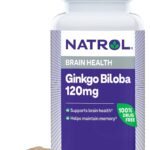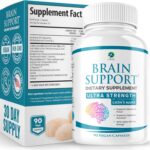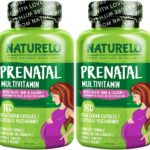The Power of Google for Food and Beverage Businesses
Introduction
In today’s digital age, having a strong online presence is crucial for any business, including those in the food and beverage industry. Google is the go-to search engine for millions of users worldwide, making it a vital platform for food and beverage businesses to reach their target audience. In this article, we’ll explore the importance of Google for food and beverage businesses and provide tips on how to optimize their online presence.
Google’s Impact on Food and Beverage Businesses
Google’s impact on food and beverage businesses cannot be overstated. With millions of users searching for restaurants, cafes, and food delivery services every day, having a strong online presence is essential for attracting customers. According to a study by Google, 76% of customers who search for a local business on their smartphone visit that business within a day. Additionally, 28% of customers who search for a local business end up making a purchase on the same day. For food and beverage businesses, this means that having a strong online presence can drive sales and increase revenue.
The Importance of Local SEO for Food and Beverage Businesses
Local SEO is a critical component of Google’s algorithm, and food and beverage businesses should prioritize it. Local SEO helps customers find businesses in their area by optimizing their website and online presence for location-based keywords. This includes claiming and verifying business listings on Google My Business, optimizing website content for local keywords, and building high-quality backlinks from local websites. By optimizing their local SEO, food and beverage businesses can increase their visibility in search results, drive more foot traffic to their stores, and attract more customers.
Google My Business: A Crucial Tool for Food and Beverage Businesses
Google My Business is a free tool provided by Google that helps businesses manage their online presence. By claiming and verifying their business listing on Google My Business, food and beverage businesses can access a range of features that can help them attract more customers. These features include posting updates, responding to customer reviews, and accessing analytics and insights about their customers. Additionally, Google My Business provides businesses with the ability to manage their business hours, address, and contact information, ensuring that customers have accurate information about their business.
Content Marketing Strategies for Food and Beverage Businesses
Content marketing is a powerful strategy for food and beverage businesses to attract and engage with customers. By creating high-quality, engaging content, businesses can showcase their products, services, and brand story, and attract more customers. This can include creating blog posts, videos, and social media content that highlights their menu items, promotions, and events. Additionally, businesses can leverage user-generated content by sharing customer reviews and photos on their website and social media channels.
Social Media Marketing for Food and Beverage Businesses
Social media marketing is a crucial component of any food and beverage business’s online marketing strategy. By creating a strong presence on platforms such as Instagram, Facebook, and Twitter, businesses can engage with customers, share content, and build brand awareness. This can include sharing menu items, promotions, and events, as well as responding to customer inquiries and feedback. Additionally, social media platforms provide businesses with the ability to run targeted ads and promotions, and track the performance of their marketing campaigns.
Optimizing Website Content for Food and Beverage Businesses
Optimizing website content is essential for food and beverage businesses to attract more customers and drive sales. This includes optimizing website pages for relevant keywords, such as menu items, ingredients, and cooking methods. Additionally, businesses should prioritize mobile-friendliness, as the majority of users access the internet through their smartphones. By optimizing website content, businesses can increase their visibility in search results, drive more traffic to their website, and attract more customers.
Measuring the Success of Google Marketing Campaigns
Measuring the success of Google marketing campaigns is crucial for food and beverage businesses to understand the effectiveness of their marketing efforts. By tracking key metrics such as website traffic, conversions, and return on investment (ROI), businesses can identify what’s working and what’s not, and adjust their marketing strategy accordingly. This can include using Google Analytics to track website traffic, and using Google Ads to track the performance of ad campaigns.
Conclusion
In conclusion, Google is a powerful platform for food and beverage businesses to reach their target audience and drive sales. By optimizing their online presence, leveraging local SEO, and creating engaging content, businesses can increase their visibility in search results, drive more traffic to their website, and attract more customers. Additionally, by tracking the success of their marketing campaigns, businesses can adjust their strategy to optimize their results.



















